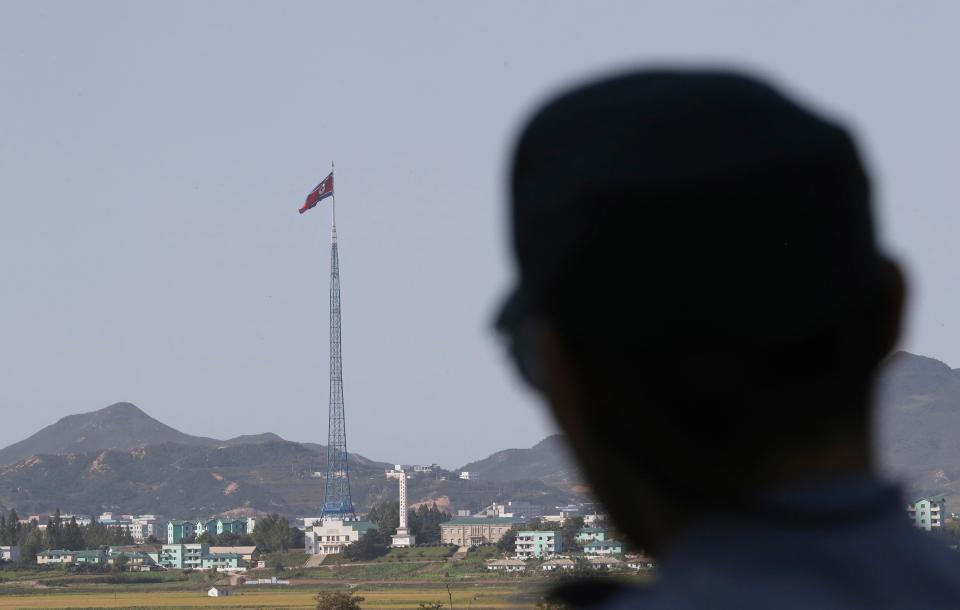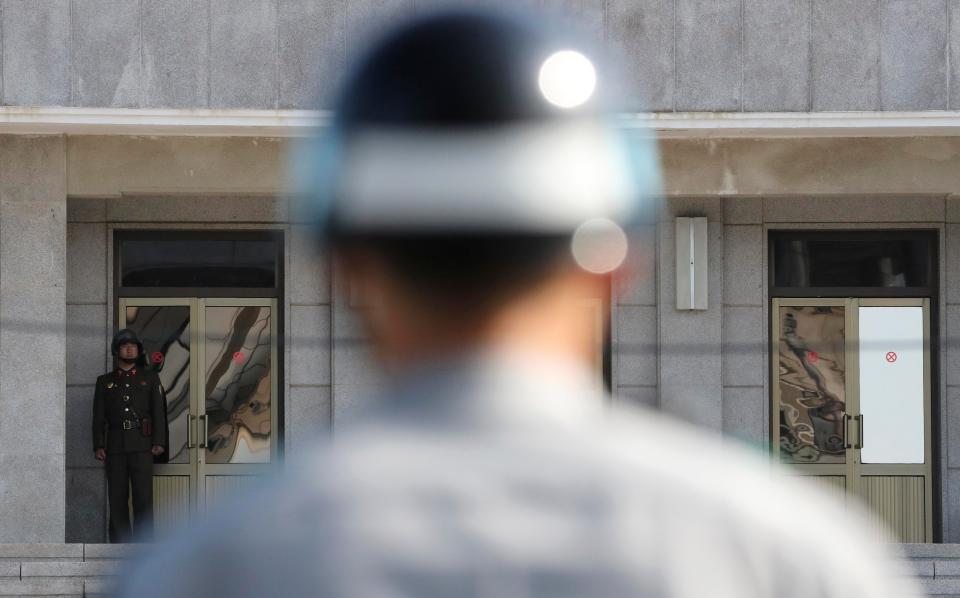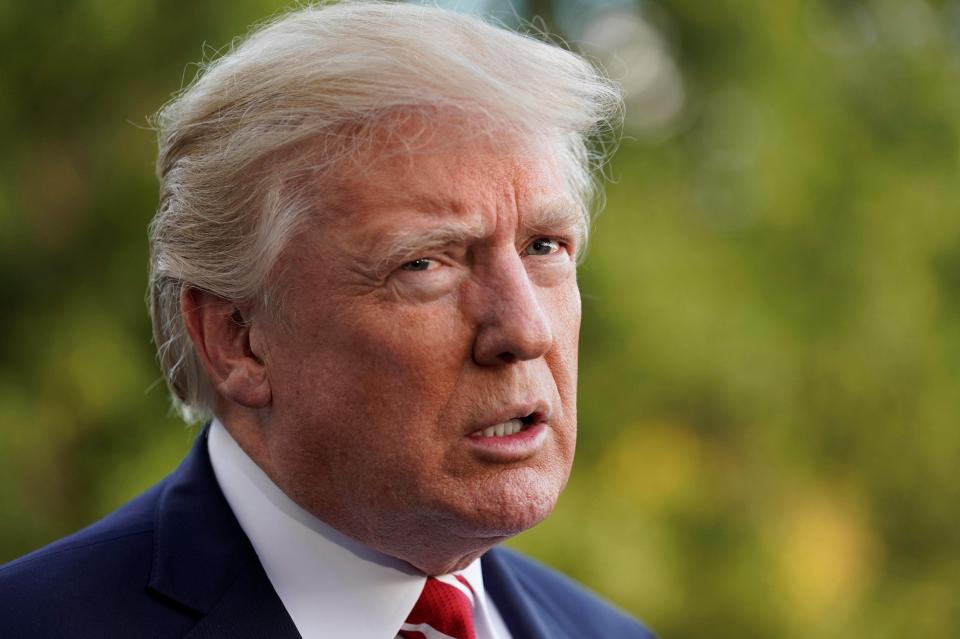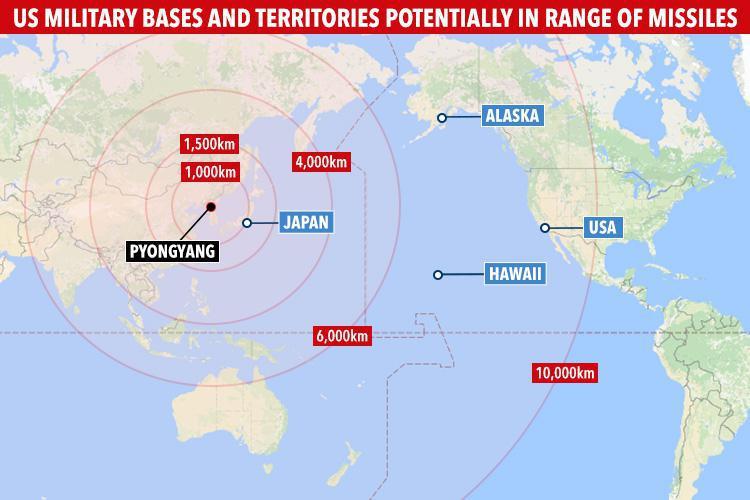Donald Trump may visit the North Korean border next month where Kim’s guns are constantly trained on visitors
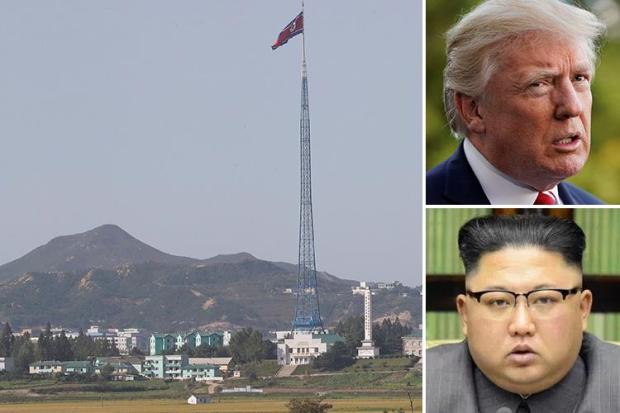
DONALD Trump may visit the demilitarised zone on the North Korean border next month, a military official has claimed.
The US president is expected to send a "significant message" to Kim Jong-un either verbally or "kinetically" as part of his first visit to South Korea amid tensions on peninsula in November.
In an extremely bold move, Trump will reportedly visit the heavily fortified DMZ area separating the two Koreas according to Yonhap News which cited an unidentified defence official.
The anonymous source told the South Korean news agency: "They looked around Panmunjom and Observation Post Ouellette.
"Trump will likely do something like that and his aides are making the relevant preparations"
The source added that for an extra layer of precaution and security, the White House has reportedly sent a team of officials to the peninsula region to check the potential places for Trump’s visit.
The source added: “He may instead visit frontline islands such as Yeonpyeong-do or Baengnyeong-do. I am not sure whether the advance team went there, too.”
Reports of Trump's potential visit to the North Korean border have not been confirmed.
The White House said last month that Trump will travel to Japan, South Korea, China, Vietnam, the Philippines, and Hawaii from November 3-14 - but hasn’t yet released a detailed itinerary.
It comes just days after the US president issued a chilling threat to North Korea - insisting "only one thing will work" when dealing with the rogue state.
The Republican said the North had embarrassed US negotiators, who he claims have tried to strike deals with the rogue state for "25 years".
Writing in a series of tweets, Trump said: "Presidents and their administrations have been talking to North Korea for 25 years, agreements made and massive amounts of money paid.
"... Hasn't worked, agreements violated before the ink was dry, making fools of U.S. negotiators. Sorry, but only one thing will work!"
But the US President didn't clarify what he was implying.
Last month, North Korean foreign minister Ri Yong-ho said: “The whole world should clearly remember it was the US who first declared war on our country.”
Fears are growing North Korea could test a nuke or launch a ballistic missile next Tuesday to mark the founding of its governing communist party.
North Korea often tests nukes or rockets on key state anniversaries.
This includes the birthdays of those in the ruling Kim dynasty.
Its most recent nuclear detonation last month triggered an artificial earthquake six times larger than in any previous test.
Leading the international condemnation, US Defence Secretary Jim Mattis vowed to meet any threat to America with "a massive military response".
North Korea claimed it has developed a sophisticated 120 kiloton hydrogen bomb small enough to be carried on an intercontinental missile.
A new report says Kim Jong-un's deadly nuke arsenal has the ability to wreak apocalyptic havoc on neighbours South Korea and Japan as well as the United States.
Four million people could die within MINUTES of launching a nuclear strike, shock research has found.


